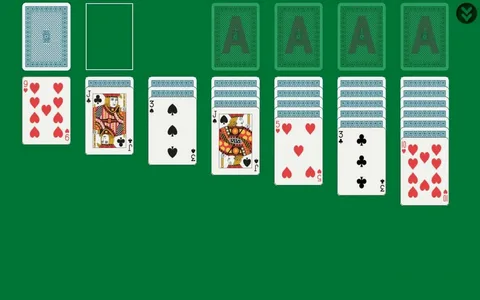The world of online gaming is no longer confined to entertainment. Gamers often develop skills that can be applied to various industries, including real estate. From pattern recognition and data analysis to decision-making and strategic planning, online gaming techniques offer valuable lessons for analyzing real estate markets. This article explores how online gaming strategies can enhance your real estate market analysis and decision-making.
Bridging Online Gaming and Real Estate
Skills Developed in Online Gaming
Online gaming requires players to master various skills, such as:
- Pattern recognition: Identifying trends or recurring elements.
- Critical thinking: Analyzing situations to make optimal decisions.
- Resource management: Allocating limited resources effectively.
- Strategic planning: Anticipating future moves and outcomes.
These skills mirror those needed for successful real estate market analysis, where understanding trends, managing investments, and planning for long-term gains are key.
The Real Estate Market as a “Game”
The real estate market can be viewed as a complex, multi-layered game with ever-changing dynamics. Just as sbobet gamers study gameplay mechanics to improve performance, real estate investors can analyze market mechanics to identify profitable opportunities.
Applying Gaming Techniques to Real Estate Market Analysis
Pattern Recognition: Spotting Market Trends
Many online games require players to recognize patterns, whether in enemy behavior, map layouts, or gameplay loops. Similarly, recognizing patterns in real estate—such as rising property values, neighborhood development, or seasonal fluctuations—is crucial.
Example:
In real estate, you might notice that properties near newly announced infrastructure projects tend to appreciate in value. By “reading the map” of urban development, you can identify areas with growth potential.
Data Analysis: Making Informed Decisions
Gamers often rely on statistics to optimize their gameplay. For example, understanding damage per second (DPS) in role-playing slot gacor terbaru games helps players choose the best equipment. In real estate, analyzing data—such as average home prices, rental yields, and vacancy rates—allows investors to make well-informed decisions.
How to Apply:
- Use tools like Zillow, Redfin, or market analysis software to gather data.
- Compare historical trends and projections.
- Look for outliers or anomalies that could indicate opportunities or risks.
Risk Assessment: Calculating the Odds
Online games often involve calculated risks. Whether it’s deciding when to attack in a strategy game or managing resources in a survival game, players learn to assess risks and rewards. In real estate, this translates to evaluating market conditions, economic factors, and property-specific risks.
Example:
Before purchasing a rental property, consider factors like:
- Potential maintenance costs.
- Expected rental income.
- Local economic stability.
Resource Management: Allocating Capital Effectively
In games like StarCraft or SimCity, players must allocate resources to build and expand efficiently. Similarly, real estate investors must manage their capital to maximize returns.
Key Lessons:
- Prioritize investments with the highest potential ROI.
- Diversify your portfolio to mitigate risks.
- Avoid overextending by keeping sufficient reserves.
Strategic Planning: Anticipating Market Movements
In competitive games, predicting opponents’ moves is a valuable skill. Real estate investors can adopt this mindset by anticipating market movements based on economic indicators, demographic changes, and industry trends.
Application:
- Monitor local job growth and population trends.
- Stay informed about government policies affecting real estate.
- Identify “emerging neighborhoods” before they become hot markets.
Online Gaming Genres and Their Real Estate Applications
Simulation Games: Building and Managing Properties
Games like The Sims or Cities: Skylines simulate property management and urban development. These games teach players to balance budgets, plan infrastructure, and anticipate growth.
Real-Life Takeaway:
Simulate investment scenarios to predict outcomes. Use tools like spreadsheets or real estate investment software to project cash flow, expenses, and profits.
Strategy Games: Long-Term Planning
Strategy games like Age of Empires or Civilization emphasize long-term planning and adaptability. Players learn to allocate resources, expand territories, and defend against risks.
Real-Life Takeaway:
Adopt a long-term investment strategy. Consider:
- Future resale value.
- Potential for rental income growth.
- Market conditions 5-10 years down the line.
Role-Playing Games (RPGs): Personalizing the Approach
In RPGs, players often customize characters and gameplay strategies to suit their goals. In real estate, personalizing your investment strategy based on your goals, risk tolerance, and resources is equally important.
Real-Life Takeaway:
Define your real estate objectives:
- Are you seeking steady rental income?
- Are you aiming for quick property flips?
- Do you want to build a diversified portfolio?
Enhancing Market Analysis with Gaming Tools
Gamification in Real Estate Tools
Several real estate platforms incorporate gamification elements, such as leaderboards, achievements, and interactive dashboards. These features can make market analysis more engaging and help investors track their progress.
Virtual Reality (VR) and Augmented Reality (AR)
Games often use VR/AR to create immersive experiences. Real estate investors can use similar technologies for virtual property tours and visualizing potential renovations.
Predictive Analytics
Just as gamers use predictive models to anticipate outcomes, real estate investors can leverage predictive analytics to forecast market trends, rental demand, and property appreciation.
Benefits of Applying Gaming Techniques
Improved Decision-Making
By adopting gaming strategies, you can analyze data more effectively, recognize opportunities, and minimize risks.
Enhanced Adaptability
Gaming teaches flexibility and adaptability—skills essential for navigating unpredictable real estate markets.
Increased Confidence
The problem-solving skills honed in gaming can boost your confidence in making investment decisions.
Conclusion
Online gaming techniques offer a unique and valuable perspective on real estate market analysis. By leveraging skills like pattern recognition, data analysis, risk assessment, and strategic planning, real estate investors can enhance their decision-making and maximize their returns. Whether you’re a seasoned investor or a newcomer to the market, integrating these gaming strategies into your approach can provide a competitive edge. So, the next time you pick up a controller or log into a game, remember that you’re not just playing—you’re sharpening skills that could help you dominate the real estate game.





